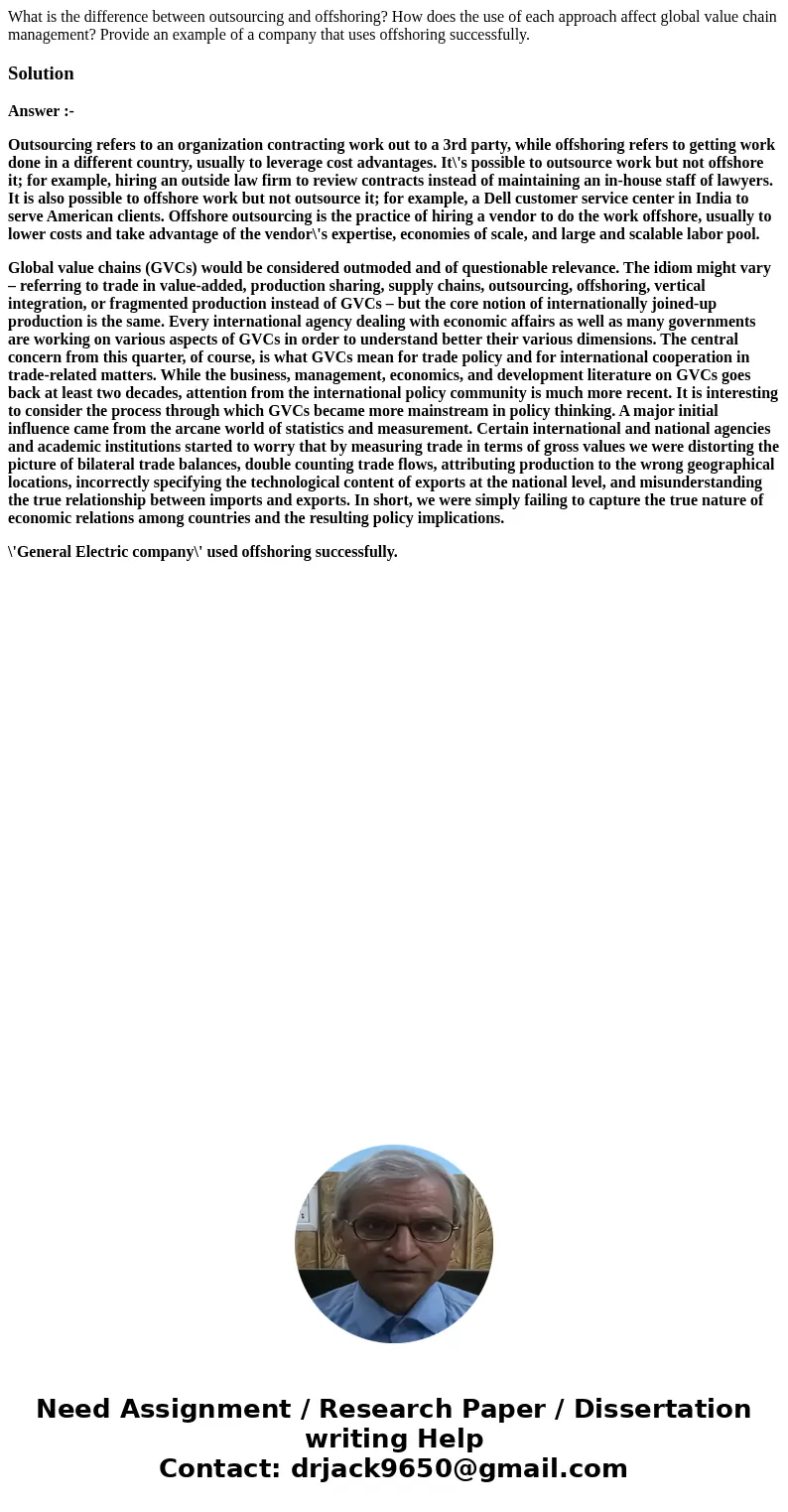What is the difference between outsourcing and offshoring Ho
What is the difference between outsourcing and offshoring? How does the use of each approach affect global value chain management? Provide an example of a company that uses offshoring successfully.
Solution
Answer :-
Outsourcing refers to an organization contracting work out to a 3rd party, while offshoring refers to getting work done in a different country, usually to leverage cost advantages. It\'s possible to outsource work but not offshore it; for example, hiring an outside law firm to review contracts instead of maintaining an in-house staff of lawyers. It is also possible to offshore work but not outsource it; for example, a Dell customer service center in India to serve American clients. Offshore outsourcing is the practice of hiring a vendor to do the work offshore, usually to lower costs and take advantage of the vendor\'s expertise, economies of scale, and large and scalable labor pool.
Global value chains (GVCs) would be considered outmoded and of questionable relevance. The idiom might vary – referring to trade in value-added, production sharing, supply chains, outsourcing, offshoring, vertical integration, or fragmented production instead of GVCs – but the core notion of internationally joined-up production is the same. Every international agency dealing with economic affairs as well as many governments are working on various aspects of GVCs in order to understand better their various dimensions. The central concern from this quarter, of course, is what GVCs mean for trade policy and for international cooperation in trade-related matters. While the business, management, economics, and development literature on GVCs goes back at least two decades, attention from the international policy community is much more recent. It is interesting to consider the process through which GVCs became more mainstream in policy thinking. A major initial influence came from the arcane world of statistics and measurement. Certain international and national agencies and academic institutions started to worry that by measuring trade in terms of gross values we were distorting the picture of bilateral trade balances, double counting trade flows, attributing production to the wrong geographical locations, incorrectly specifying the technological content of exports at the national level, and misunderstanding the true relationship between imports and exports. In short, we were simply failing to capture the true nature of economic relations among countries and the resulting policy implications.
\'General Electric company\' used offshoring successfully.

 Homework Sourse
Homework Sourse